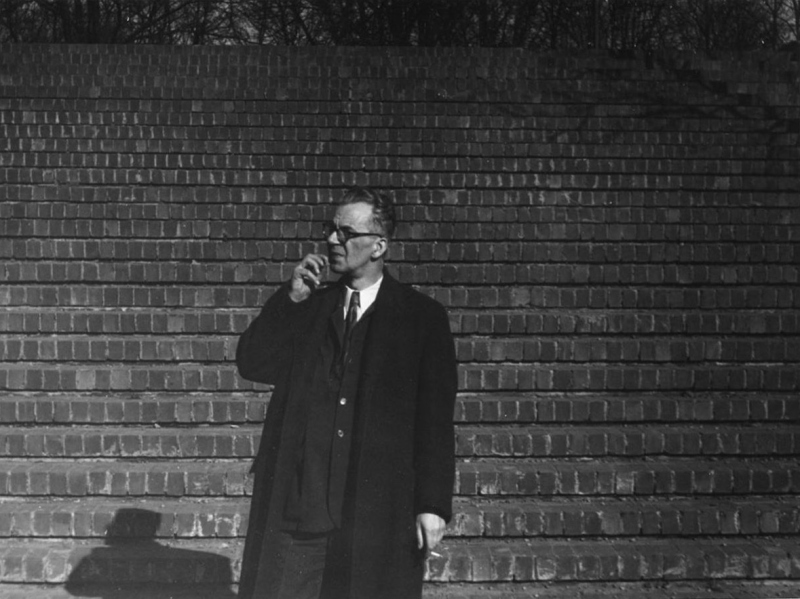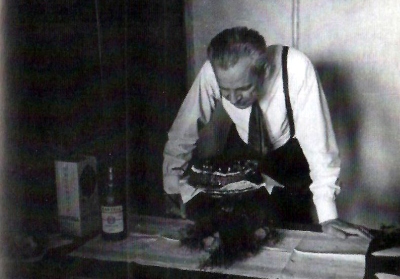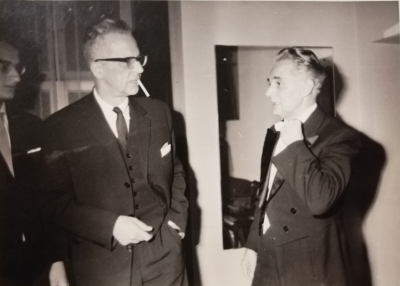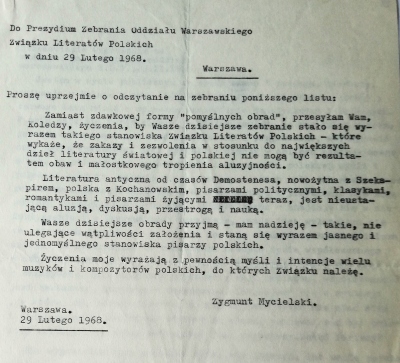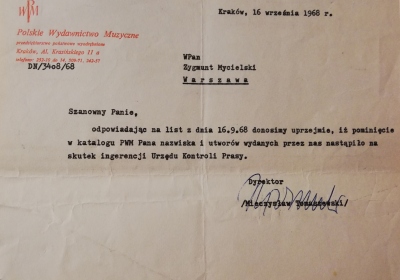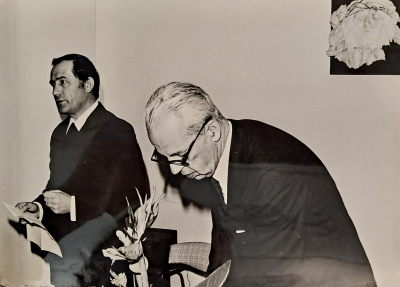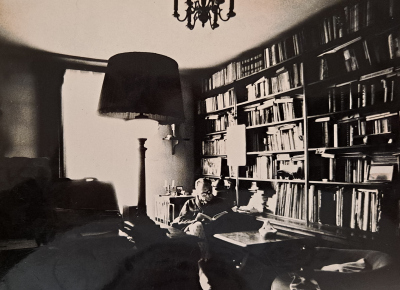I have to say emphatically that we are, unfortunately, living in a world that is closed off and – practically speaking – isolated from the artistic life around us. Even the quite numerous official trips, congresses or conventions – to which a few, usually the same, artists and virtuosos go – will not help here. This is not genuine artistic contact. Artistic contact happens through concert life, concert programs, which must feature the highest achievement of world music, easy access to publications, exchange of soloists and conductors, trips organised for young people, who can hardly be expected to turn into expert critics and practitioners in their profession, if they are separated from what happens in the Soviet Union, in people’s democracies, in Western countries. We are becoming a backwater, in which we cannot imagine how or what is played and produced there. [...] This state of affairs and the ignorance – growing with each passing year – of what goes on elsewhere in our field is more than dangerous. (Z. Mycielski, “Twórczość muzyczna dziesięciolecia (z referatu na Walnym Zjeździe ZKP, 4 VII 1955)”, in idem, "Ucieczki z pięciolinii", Warsaw 1957).
These were courageous words. They heralded a political thaw, for the year 1956 brought a major breakthrough. In October, after a stormy discussion, the Eighth Plenum of the Polish United Workers’ Party’s Central Committee handed power to Władysław Gomułka, who announced a new political course. At the same time the National Philharmonic Hall was hosting concerts of the International Festival of Contemporary Music, which, under the name “Warsaw Autumn”, would become a window on the world for Polish music. Zygmunt Mycielski was involved in these events, recording his fears and hopes in his diaries as well as in musical notes he wrote from 1955 for Przegląd Kulturalny.
